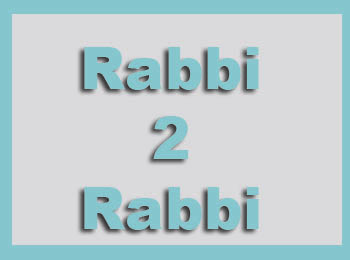When a Jew marries out of the faith, is it the end of the road, or can subsequent generations still be Jewish?
Rabbi N.Daniel Korobkin
Beth Avraham Yoseph Congregation, Toronto
Rabbi Lisa Grushcow
Temple Emanu-El-Beth Sholom, Montreal
Rabbi Korobkin: The latest Pew Survey on Jews in America contains a few dark clouds for the future of North American Jewry. Rabbi Grushcow, as a Reform rabbi, you represent the Jewish movement to which the highest percentage of U.S. Jews affiliate. But is that really a victory when more than half of marriages since 2000 have been intermarriages? How do we as a Jewish community respond to the alarming figure of 22 per cent of American Jews who now profess to be Jews of “no religion”?
Rabbi Grushcow: I don’t see these numbers in terms of victory or defeat. Rather, I think they raise important issues for us all. For example, intermarriage is far from limited to Reform Jews. As a movement, though, we have made the decision to welcome and support everyone who wants to build a Jewish family. That includes a lot of couples where one spouse isn’t Jewish. I continue to be inspired by how many non-Jewish parents are dedicated to raising Jewish kids.
Rabbi Korobkin: I also try to be optimistic, as do you, rabbi. But whereas you are inspired by intermarried families that raise their children as Jewish, I see defeat and failure. The cornerstone of Jewish continuity is when two Jews marry and raise their children Jewish. I don’t believe that this continuity and Jewish legacy can be maintained when only one parent is Jewish, and I think both history and our own observations bear this out. While there are the occasional exceptions, even exceptional exceptions, they don’t support the rule.
Rabbi Grushcow: We see very different realities in our different communities. At Temple Emanu-El-Beth Sholom, non-Jewish parents of Jewish children are part of the very fabric of our synagogue’s life, and they add to our community in immeasurable ways. More and more, we see people opting into Judaism, whether or not they pursue conversion. When we look to our history (even going back to inscriptions in ancient synagogues), we learn that in many eras, non-Jews have been supporters of the synagogue and of Jewish life. As long as we see intermarriage as the end of the road, we will close our doors to people who would otherwise come in. When we open the doors, we don’t just accommodate exceptions to the rule, but the rules themselves change. I often think of the talmudic dictum that we should only judge by what our own eyes see. In that sense, I am very optimistic about Jewish life, and I am continually impressed by the people who find their way to us.
Rabbi Korobkin: Don’t get me wrong: I agree that intermarried families can contribute a great deal to the fabric of a Jewish community, so I’m not negating your experience. I’ve noted that at times, they are even more enthusiastic to make a difference, since they have to compensate for the greater challenge in providing Jewish identity to their families. My point is, rather, that when we look at the bigger picture of Jewish continuity, about what makes Judaism perpetuate from generation to generation, history shows us that once a Jew marries out of the faith, the chances of his or her Judaism continuing beyond a generation or two approaches nil. You know the old rabbinic commentary to the four sons at the seder: Each “son” represents a succeeding generation within the same family. Where’s the fifth son, the fifth generation? The fourth son’s Judaism became so diluted that he intermarried, so the fifth son doesn’t even bother showing up to the seder. Yes, we never give up on any Jew, even the intermarried Jew. But looking at the Pew study’s cold statistics gives one a shiver.
Rabbi Grushcow: I don’t think the fifth son disappears because of intermarried parents. We have many families at the temple who have had intermarriages in every generation and stayed deeply connected to synagogue and Jewish life. I think the fifth son disappears when we take Judaism for granted, or base it entirely on nostalgia. Interfaith families, and others who consciously choose a Jewish path, have to think about why they are Jewish and what form their Judaism takes. This, to me, can be a source of strength, even if it can be a more difficult path.
